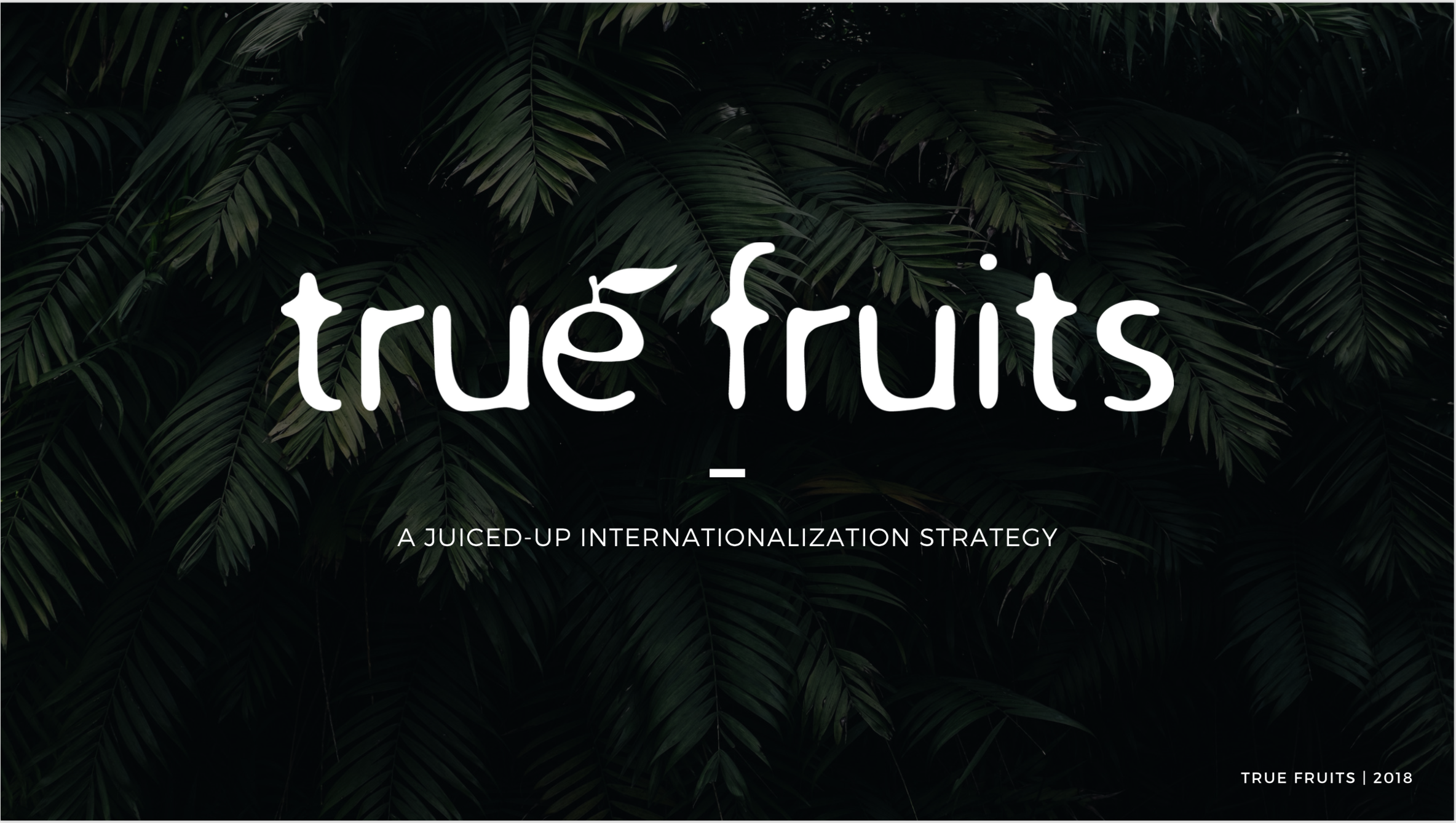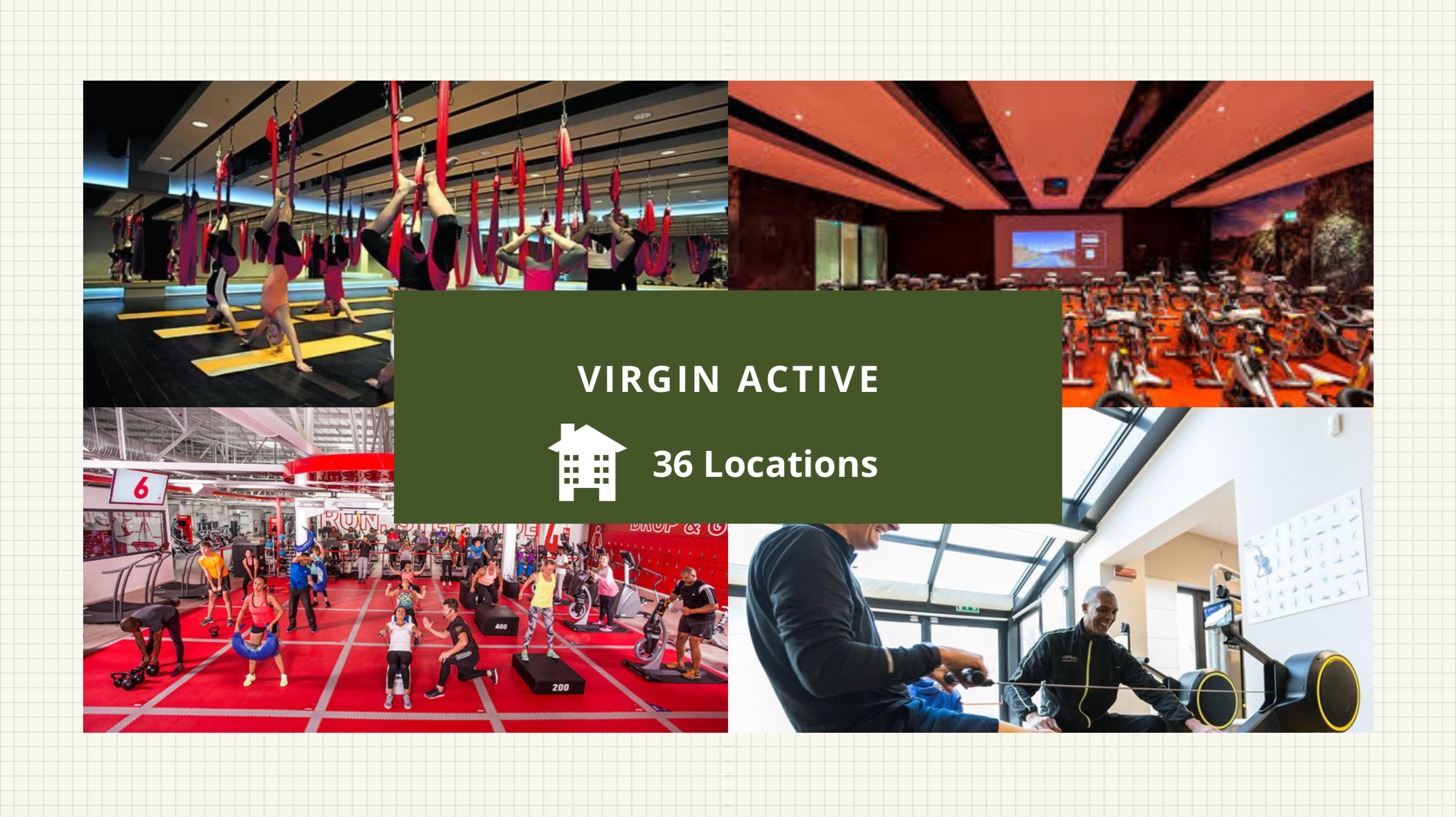The dream team from left to right: Abhishek Aggarwal, Joel Joseph, Rehan Haider, and Emilio Setiadarma
This weekend I had the amazing experience of working with an amazing team to compete in the Marshall International Case Competition Challenger. Now despite the fact I was the one of the only non business students competing this weekend, I didn’t let that deter me. If anything it was able to complement the finance heavy nature of the team, with the other 3 members strong financials background complementing my experience pitching startups in the past. Not only could I craft a compelling and logical story about the expansion, but my teams could create the finance projections to back it up.
The business case we worked on this weekend revolved around a company name True Fruits, which brought the smoothie to Germany. Essentially when they started no one in Europe knew what a smoothie was, yet today they are the biggest player in smoothies. The question we were asked to present on was whether it was time to expand internationally, and if so what the ideal markets would be to expand into.
To see the exact case click me.
Now just as important as the final result is the way my team came about our recommendations. Very early on our team’s strategy revolved finding the core question, which in this case was if and how True Fruits should expand its market internationally, and building a story around it. In order to build that story I structured the major questions in the case almost
We first started off with why now was the right reason for the company to expand. Much like how this company picks its fruit at the ripest point, the European Smoothie Market was ripe for the picking. This explained why expansion was necessary.
We then moved on to our analysis of neighboring European countries, and explained why we thought that France, Italy, and Spain were the ideal markets to enter. This explained where the company needed to expand.
We finally ended up on how the company should expand. We believed that the expansion should happen in the core smoothie business as opposed to any of their other juice and fruit products. The reason being is strategically, smoothies are a defendable business. Juices and fruit products have long shelf lives, meaning if a Starbucks or international player wanted to win marketshare overnight they could do it by pouring in money. But the smoothies have a shelf life of a maximum of a week, meaning they need to be produced somewhat locally, giving the business a natural moat against any future challengers.
Moreover my team believed that a staggered expansion was the best, given the fact the company had only 20 employees. The idea was that the company should spend the first year testing out the markets by exporting directly from their German facilities. If the market developed and they had good traction (we had specific numbers we presented to the judges), then we would build local production in that market. If not, we would just continue exporting until the market developed. The core of the strategy was to build optionality, and not overextend the company as the companies culture was steady but solid expansion overtime.
Another thing to note is that this company’s marketing strategy of crude humor in the German market, while effective domestically, would not be appreciated in other countries. In fact many times the marketing campaigns the company put out were frankly sexist and racist. As a result our team realized that not only would be ethically bad to expand these marketing strategies internationally, but it also wouldn’t be the best thing for the company’s bottom line. The way our team mitigated this problem was by suggesting that all marketing for the company in international markets be handled by local advertising firms. This helped make the marketing more tailored to each country.
Moreover we included some partners for the launch. We focused on finding the European equivalent of Whole Foods in each of the markets to sell the smoothies, while also finding a local high end gym to help market our product at least initially. This explained how the company would expand.
Our team thought the background was pretty funny. This was an image we stole from the company website of a woman doing a “line of smoothies.” We thought it fit in because we were presenting a timeline of smoothies.



























